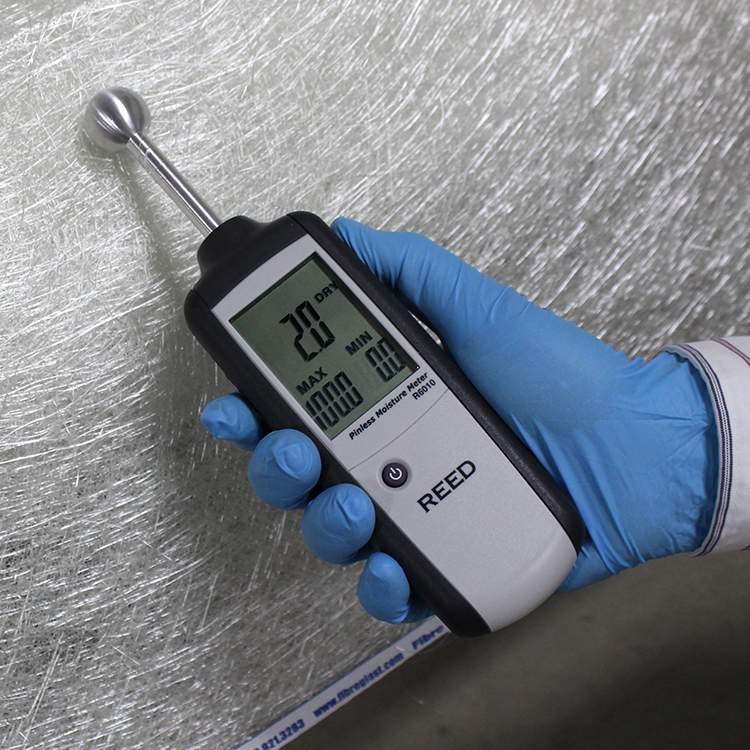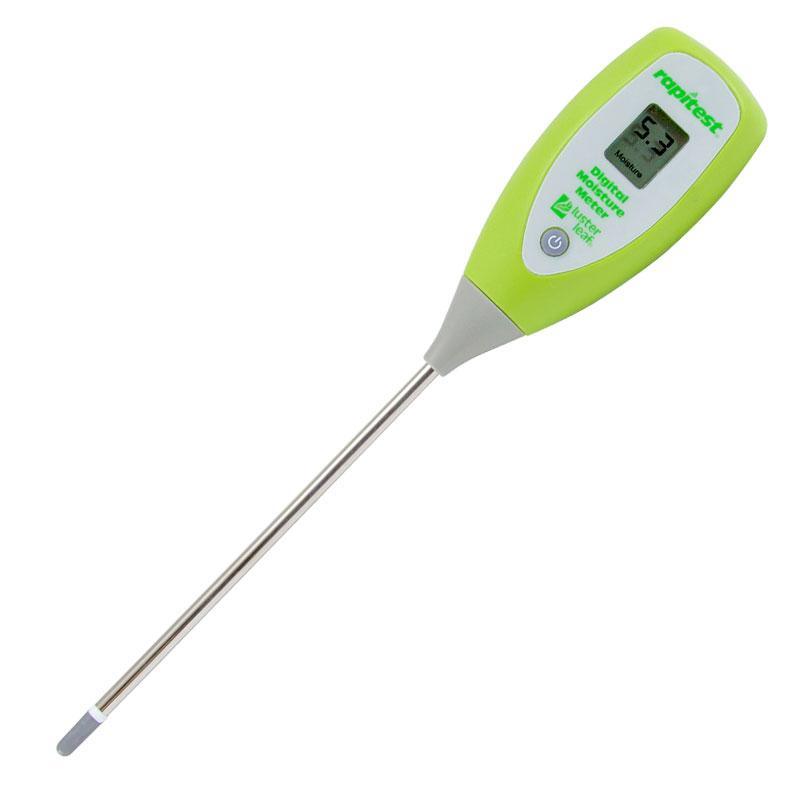Just How a Moisture Meter Can Boost Your Construction Jobs and Avoid Damages
Wiki Article
The Ultimate Guide to Moisture Meters: A Comprehensive Summary and Exactly How They Can Save You Cash
In the world of structure upkeep, construction, and numerous industries, the significance of properly measuring wetness levels can not be overemphasized. Moisture meters function as crucial devices in spotting and monitoring moisture material in materials, aiding in protecting against pricey problems and making sure the quality of products. Understanding the subtleties of various types of wetness meters, their applications, and the potential cost-saving benefits they offer can be a game-changer for professionals and companies alike. Uncovering just how these devices can not just streamline processes but likewise contribute to economic cost savings is a journey worth getting started on.Sorts Of Moisture Meters
One typical kind is the pin-type wetness meter, which determines the electric resistance between 2 pins placed into a material. Pinless moisture meters, on the other hand, use electromagnetic sensing unit plates to check a bigger location without causing damages to the material's surface.Infrared moisture meters determine the thermal residential or commercial properties of a material to establish its wetness material non-invasively, making them beneficial for applications where pin or pinless meters might not be ideal. Understanding the various kinds of wetness meters readily available can help industries choose the most ideal tool for their certain dampness measurement demands.

Benefits of Using Moisture Meters

Moreover, making use of moisture meters can result in boosted power performance. By identifying locations with high moisture degrees, such as leaks or inadequate insulation, modifications can be made to improve energy preservation and lower utility expenses. In farming settings, moisture meters play an important duty in enhancing crop returns by allowing farmers to monitor soil wetness levels and make informed irrigation decisions. Overall, the advantages of using wetness meters span throughout different markets, offering cost-effective options and advertising much better top quality control methods.
How to Pick the Right Moisture Meter
Picking the suitable dampness meter includes thinking about essential elements such as product compatibility, measurement variety, and calibration precision. When choosing a moisture meter, it's important to ensure that the meter Read Full Article appropriates for the specific product you will be screening. Different products have differing electrical homes that can affect wetness see this analyses, so selecting a meter designed for your material is critical for precise outcomes. Furthermore, take into consideration the measurement variety of the wetness meter. Ensure that the meter can discover dampness levels within the variety needed for your applications. Calibration accuracy is another crucial variable to bear in mind (Moisture Meter). Select a wetness meter with trusted calibration to make sure consistent and accurate readings. Some meters may need routine calibration changes, so comprehending the calibration procedure is important. By carefully examining these factors, you can pick a moisture meter that fulfills your demands and offers accurate wetness measurements for your projects.Proper Techniques for Moisture Meter Usage
To make certain precise moisture analyses and make the most of the effectiveness of a dampness meter, employing correct strategies is vital. When using a pin-type dampness meter, insert the pins or probes right into the material being examined up until they make complete get in touch with. By following these appropriate techniques, individuals can rely on their wetness meter to provide credible moisture degrees, aiding in stopping costly damage or making certain high quality in numerous applications.
Expense Savings Via Moisture Meter Applications
Just how can the strategic usage of wetness meters lead to substantial price financial savings across various markets? In the farming market, dampness meters help in determining the optimal time for harvesting crops, stopping excess or over-drying moisture that can impact the final product's high quality.

In addition, in the food handling sector, dampness meters are crucial for monitoring product quality and ensuring compliance with safety regulations. By properly gauging dampness web content in food items, makers can stop wasting, preserve freshness, and decrease waste, resulting in significant price financial savings. Generally, the calculated application of wetness meters is an important investment that can bring about significant expense reductions visit the website and boosted performance throughout numerous sectors.
Conclusion
In conclusion, dampness meters are valuable devices for measuring and discovering dampness levels in numerous products. By utilizing the ideal dampness meter and complying with correct techniques, individuals can successfully prevent expensive problems created by excess wetness.Dampness meters serve as crucial tools in discovering and checking moisture content in materials, helping in protecting against costly damages and guaranteeing the high quality of items. Infrared dampness meters gauge the thermal residential properties of a product to establish its moisture web content non-invasively, making them useful for applications where pin or pinless meters may not be ideal.Dampness meters supply invaluable advantages in accurately evaluating and keeping an eye on wetness degrees in diverse materials and atmospheres. In agricultural settings, moisture meters play an essential role in optimizing crop returns by making it possible for farmers to check dirt dampness levels and make notified irrigation decisions.In verdict, dampness meters are useful tools for discovering and determining moisture degrees in different materials.
Report this wiki page